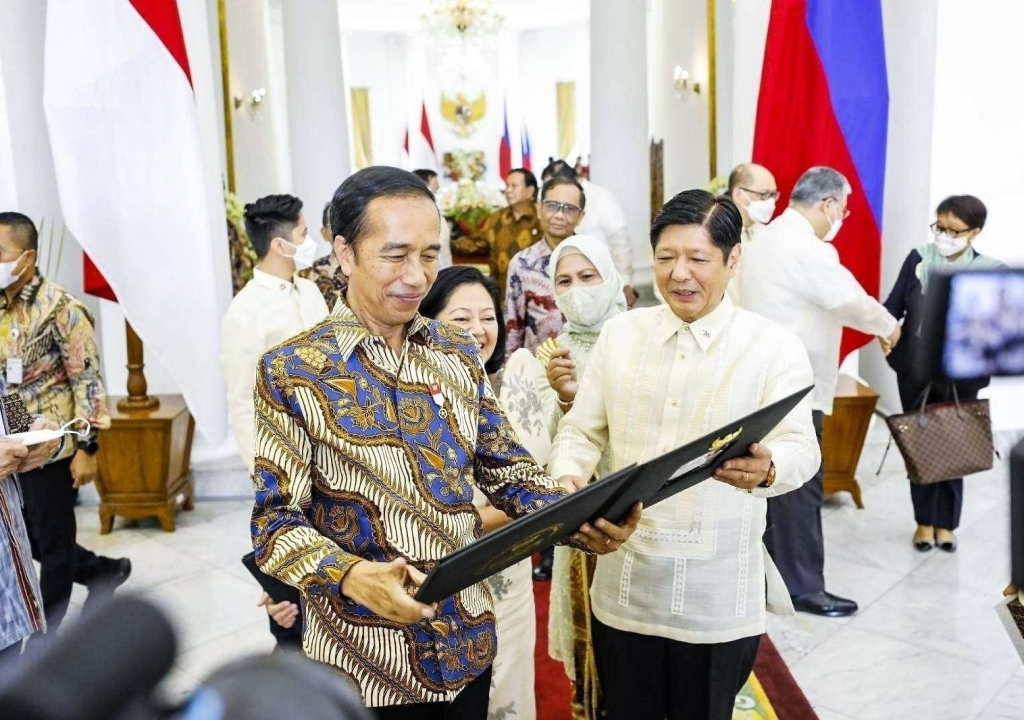During a recent meeting in Manila, Presidents Ferdinand Marcos Jr. of the Philippines and Joko Widodo of Indonesia engaged in discussions concerning the latest developments in the South China Sea and strategies for enhancing regional cooperation. Given that both nations are archipelagos with numerous islands in the South China Sea, they play pivotal roles in managing tensions in the region.
Following their bilateral meeting, Marcos characterised the discussions as “fruitful and honest,” underscoring the significance of regional developments, particularly the evolving scenario in the South China Sea. The heightened focus is seen as imperative to foster unity among nations and establish a collective front for negotiations and defence against China’s territorial claims.
Indonesia’s Foreign Minister, Retno Marsudi, expressed her government’s willingness to collaborate with other Southeast Asian countries in finalizing the long-awaited code of conduct for the South China Sea. Retno stated, “On the South China Sea, Indonesia is prepared to work together with all ASEAN member states, including the Philippines, to expedite the finalization of the Code of Conduct.” This commitment is made in consideration of the overlapping claims with China by several neighboring nations, including Indonesia.
With the primary goal of fostering stability in the region, there is a strong emphasis on addressing conflicts in the South China Sea through diplomatic means, as highlighted by the collaborative endeavor to establish a Code of Conduct. The effort involves China and the Association of Southeast Asian Nations (ASEAN), which have long sought to create a framework for negotiating the code of conduct—a concept initially proposed in 2002. Despite assurances from all parties to accelerate and expedite the process, progress has been notably slow.
The “nine-dash line,” which China uses to demarcate its territorial claims on maps, encroaches on the exclusive economic zones of Brunei, Indonesia, Malaysia, the Philippines, and Vietnam and stretches up to 1,500 km (900 miles) south of the Chinese mainland. There are still worries that China’s influence and interests in the region could cause conflicts among Southeast Asian countries, even after a 2016 international arbitral tribunal ruling invalidated most of China’s claims—a decision Beijing rejected. President Marcos addressed the need for more collaboration among ASEAN members, emphasizing that Indonesia and the Philippines both reaffirmed their adherence to the 1982 United Nations Convention on the Law of the Sea (UNCLOS). The legal foundation guiding all activity in seas and oceans is UNCLOS.
The necessity of bolstering cohesion and centrality within the Southeast Asian bloc was underscored by President Widodo. He said, “[We also agreed] for ASEAN to continue upholding the principles of international law and serving as a positive force for peace, stability, and prosperity.” Both presidents pushed for calm communication between all sides in the South China Sea in reaction to the increased tensions there, which were reported by the foreign ministers of ASEAN last month. Increased marine encounters in the disputed waterway have been a sign of the Philippines and China’s rising tensions in recent months. In light of conflicting territorial claims, maintaining regional security is complicated and difficult, as seen by the urgent need for diplomatic solutions.
Additionally, Manila and Jakarta decided to strengthen their border security cooperation. This cooperative endeavor entails hastening the rewrite of border patrol agreements and initiating talks to establish continental boundaries. The stability and security of the area are strengthened by this commitment.
Although there have been territorial disputes in the South China Sea for millennia, there has been an increase in tension in recent years due to different geopolitical developments, Taiwan’s elections, and the United States’ deteriorating international ties. Southeast Asian countries’ ability to work together and overcome these obstacles will determine how this area and the world order develop in the future.








